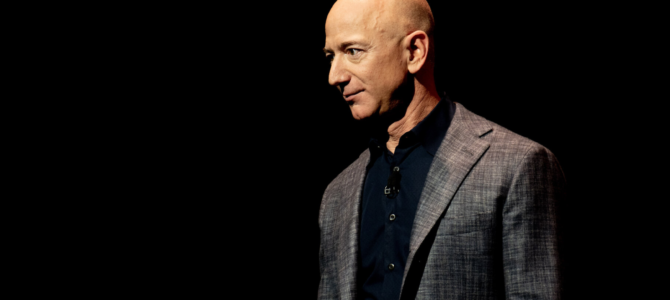
The following is a transcript of my radar from Tuesday’s edition of “Rising” on Hill TV.
I’d introduce you to the New Contras, but you already know them: Andrew Schulz, Michael Malice, Katie Halper, Katie Herzog and, of course, Joe Rogan. This show itself has been a huge driving force behind the “New Contra” movement Federalist publisher Ben Domenech and I sought to describe in an article we published on Election Day last year.
In December, we wrote a follow-up, inspired by a telling set of parallel departures at Vox. Ezra Klein went to the Grey Lady. Matthew Yglesias went to Substack.
“In corporate media, heterodox thought is rewarded with closed doors,” we wrote. “In the Wild West of today’s new media, it’s rewarded with subscriptions. While it may sound laughable that Klein and Yglesias will enjoy similar levels of influence—one at the Paper of Record and the other at an independent newsletter—it’s mostly true. And that’s a blindspot legacy outlets still haven’t corrected.”
But those outlets have little incentive to correct their blindspots in this splintered media economy, where Stephen Colbert can be both the most polarizing and successful late-night host and papers like the New York Times can retract anodyne op-eds from Republican senators for violating thoughtcrimes and actually please their readership. We’re all in niches now.
So the currency is trust. For polarized media consumers, that means listening to talk radio or reading the Times. For everyone in between, trust is increasingly boosting voices that prize authenticity over gloss. The gatekeepers are gone or corrupt. Nobody knows who to trust — and for good reason — so people who level with us about that are doing well. That’s what happened with “Rising.” It’s why I’m a longtime viewer, like many of you — and why I’ve been working three jobs for the past few weeks, dragging myself out of bed too early, despite being the most anti-morning person ever. This show is part of something really important.
Just last week, Ryan Grim and I went a little bit viral for sparring over the legacy American imperialism. We didn’t mean to, we were just talking, covering the news as we had done all week. We were actually amused by the strong reaction. I think it revealed something really interesting and, perhaps, impossible about the political realignment, with one side’s motivation moored in a reverence for the country and the other’s in a genuine, good faith disdain for it.
That’s a disconnect that’s best exposed and explored through good-faith debate. But this is exactly the point. Jon Stewart’s legendary death blow to “Crossfire” wasn’t as great as the corporate press likes to remember. It’s good to see representative political debate in the media. In its absence, something quite ugly can develop.
Enter Jeff Bezos. “On Wednesday, Jeff Bezos announced a career accomplishment that the movie archvillain Ernst Stavro Blofeld could only dream about: owning James Bond,” Rachel Bovard wrote in The Federalist. Her headline was brilliant: “There’s No James Bond To Stop Jeff Bezos From Increasing His Global Power.”
With his empty expressions and robotic cadence, Bezos really is the perfect Bond villain. He’s a Bond villain who’s now in charge of the Bond villains. “The question of market economics, however, is separate from the cultural consequences of Amazon taking ownership of yet another avenue of expression in America,” wrote Bovard, who then walked through a list of egregious efforts on Amazon’s behalf to preserve a cultural monopoly: yanking a totally inoffensive documentary about Clarence Thomas during Back History Month, deplatforming Parler like it had deplatformed Wikileaks, stopping sales of books that question the excesses of transgender ideology on children.
Think what you want about Clarence Thomas or Parler or Ryan Anderson. What’s troubling is that executives at one of the biggest platforms for retail and web hosting believe their bar for company censorship should be that low, despite their market share being so high.
Here’s more from Bovard:
America’s rich speech traditions are built around robust dissent, counternarrative, and the clang and clash of ideas in the public square. Free expression is central to our flourishing. Americans want our books to be controversial, our media to be curious, and our films to be creative. But the genius of that creation is sparked by fearlessness—the kind which only exists when the public square is brimming with voices, rather than the antiseptic sameness of a solely owned company town.
There is no way I could’ve said it better than that. And it’s what America’s monopolists don’t understand about the public. Their cultural monopolies are powerful, but perhaps not as powerful as their economic ones, connected as they are. Demand for heterodox thought and charged debate is increasing as monopolists like Bezos, who also owns the Washington Post, try to bring the public discourse under their control.
Culture is what creates demand. These companies control the biggest podcasting platforms, web services, video streamers, etc. But, as Andrew Schulz told us late last year, “All these corporations act all woke, but what they really want is the dollar.”
His Netflix show debuted a few weeks later.
None of this is to say today’s monopolists don’t warrant regulatory checks. True conservatism should be as hostile to cronyism as progressivism.
But sometimes it’s important to prioritize cultural checks as well.








